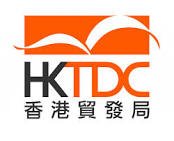 New Business Opportunities Amid China’s Ageing Population
New Business Opportunities Amid China’s Ageing Population
HKTDC Research Sheds Light on Elderly Spending Habits
13 July 2015 – The Chinese mainland’s growing ageing population is more free-spending and more tech savvy than is generally perceived, according to a focus group study published today by the Hong Kong Trade Development Council’s (HKTDC) Research team.
To highlight business trends and opportunities related to the mainland’s elderly, or so-called “silver” market, the HKTDC conducted focus group discussions in four mainland cities: Beijing, Shanghai, Guangzhou and Wuhan. The findings may alter some commonly held perceptions.
Watch our video here – http://youtu.be/rVvi0nn0G5s
Targeting China’s Seniors: Consumer Preferences http://economists-pick-research.hktdc.com/business-news/article/Research-Articles/Targetting-China-s-Seniors-Consumer-Preferences/rp/en/1/1X000000/1X0A2Z8V.htm
Willing to Spend
The study found that elderly middle-class people on the mainland are willing to open their wallets, particularly when purchasing health and lifestyle-related products such as saunas and training shoes. They also prefer to make their own purchasing decisions.
“Normally, many people would think that the elderly are quite passive in terms of spending, that they tend not to spend too much, wait for the children to buy things for them,” said Billy Wong, Principal Economist, Greater China, HKTDC. “From our focus group discussions what we find very interesting is the fact that it is not like that. The middle class elderly, most of the time, make their own choices, make their decisions on what to buy and pay for products and services themselves.”
Although famous brands are not a priority for the “silver” market, product quality is important and the elderly tend to take a “results-oriented” approach. Daily necessities were found to have a greater market potential as respondents expressed a willingness to pay more for comfortable, good quality and stylish clothes. Elderly consumers are also on the lookout for products with higher technology content.
Smart Solutions
The growing number and range of smart products on the market are of great interest to elderly consumers. There is significant demand among the elderly and their carers for lifestyle solutions, including robotic assistance in the home and smart products that can keep track of dementia patients, monitor health, give reminders to people taking medication and flush toilets automatically.
Word of Mouth is Key
There are abundant advertisements for products and healthcare goods targeting the “silver” market on the mainland. However, the HKTDC study found that advice from doctors and word-of-mouth were crucial factors affecting the purchasing decisions of elderly consumers. The study found that participants had more confidence in products that were recommended by doctors or friends and relatives. While brand loyalty is an important factor, elderly consumers easily switch brands depending on results and recommendations.
Effective Selling
The mainland’s “silver” market is also highly discerning when making purchasing decisions. Free trials of products and attentive service are seen as key sales strategies targeting the elderly. Online shopping is generally less popular among the elderly compared to other sectors of the population. However, among the Shanghai study group, the Oriental TV Shopping channel and its website were very popular.
Ageing Population
In 2014, nearly 140 million people on the mainland were aged 65 or above, accounting for 10.1 per cent of the national population, compared to 7.7 per cent in 2005. The United Nations predicts that the mainland’s population of over-65s will increase by about seven million per annum on average over the next two decades, and will account for nearly 20 per cent of the country’s population by 2035. As the elderly population increases, their consumer spending will also grow. The size of this “silver” market is expected to increase from Rmb4 trillion in 2014 to about Rmb106 trillion in 2050.
Reference:
The focus group discussions were held in Beijing, Shanghai, Guangzhou and Wuhan in early April 2015, with two workshops held in each city gathering views from 64 participants. The target respondents were aged 65 or above (men and women in equal proportions) and adult carers of people aged 65 years of age or older either at home or in nursing homes. The respondents had a monthly household income of Rmb12,000 or more in Beijing, Shanghai and Guangdong, and Rmb8,000 or more in Wuhan. The average monthly spending level of the respondents was Rmb3,300 or more, and all the respondents had bought senior-specific products or services in the last six months. The main product types covered in the survey include: daily necessities (clothing, shoes and home appliances that can help the elderly with self-care tasks at home); food (supplements and healthcare products); and healthcare and rehabilitation supplies. The services mainly involved nursing home service, domestic service, and culture and recreation services (including tourism).
About the HKTDC
A statutory body established in 1966, the Hong Kong Trade Development Council (HKTDC) is the international marketing arm for Hong Kong-based traders, manufacturers and services providers. With more than 40 offices globally, including 13 on the Chinese mainland, the HKTDC promotes Hong Kong as a platform for doing business with China and throughout Asia. The HKTDC also organises international exhibitions, conferences and business missions to provide companies, particularly SMEs, with business opportunities on the mainland and in overseas markets, while providing information via trade publications, research reports and digital channels including the media room. For more information, please visit: www.hktdc.com/aboutus.
